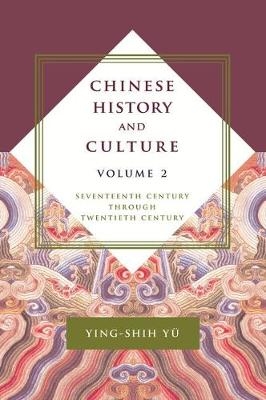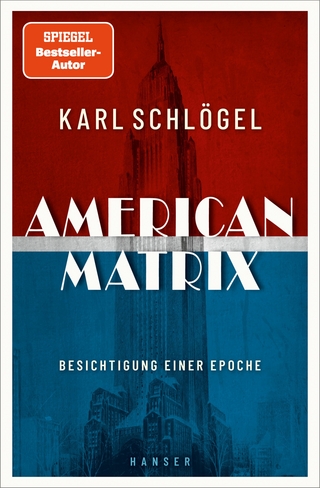
Chinese History and Culture
Columbia University Press (Verlag)
978-0-231-17860-0 (ISBN)
Essays address the rise of Qing Confucianism, the development of the Dai Zhen and Zhu Xi traditions, and the response of the historian Zhang Xuecheng to the Dai Zhen approach. They take stock of the thematic importance of Cao Xueqin's eighteenth-century masterpiece Honglou meng (Dream of the Red Chamber) and the influence of Sun Yat-sen's Three Principles of the People, as well as the radicalization of China in the twentieth century and the fundamental upheavals of modernization and revolution. Ying-shih Yu also discusses the decline of elite culture in modern China, the relationships among democracy, human rights, and Confucianism, and changing conceptions of national history. He reflects on the Chinese approach to history in general and the larger political and cultural function of chronological biographies. By situating China's modern encounter with the West in a wider historical frame, this second volume of Chinese History and Culture clarifies its more curious turns and contemplates the importance of a renewed interest in the traditional Chinese values recognizing common humanity and human dignity.
Ying-shih Yu is a preeminent historian of China. Awarded the John W. Kluge Prize for achievement in the Study of Humanity and the inaugural Tang Prize International Award in Sinology, he has published more than thirty books and five hundred articles and essays on Chinese history, thought, politics, and culture. His most recent works include Lun tian ren zhi ji (Between Heaven and the Human: An Exploration of the Origin of Ancient Chinese Thought, 2014), Zhu Xi de lishi shijie (The Historical World of Zhu Xi: A Study of the Political Culture of Song Intellectuals, 2003, 2011), and Shi yu Zhongguo wenhua (Chinese Intellectuals and Chinese Culture, 2003, 2010, and 2013). Josephine Chiu-Duke is associate professor of Chinese intellectual history in the Asian Studies Department at the University of British Columbia. She is the author of To Rebuild the Empire: Lu Chih's Confucian Pragmatist Approach to the Mid-T'ang Predicament (2000), editor of Liberalism and the Humanistic Tradition-Essays in Honor of Professor Lin Yu-sheng (2005), and co-translator of Ge Zhaoguang's An Intellectual History of China, Volume 1: Knowledge, Thought, and Belief Before the Seventh Century C.E. (2014). Michael S. Duke is professor emeritus of Chinese and comparative literature at the University of British Columbia. He is the author of several books on modern and traditional Chinese literature, including Blooming and Contending: Chinese Literature in the Post-Mao Era (1985), translator of Koonchung Chan's The Fat Year (2011), and co-translator of Ge Zhaoguang's An Intellectual History of China, Volume 1 (2014).
Author's Preface Editorial Note List of Abbreviations Chronology of Dynasties 1. Some Preliminary Observations on the Rise of Qing Confucian Intellectualism 2. Dai Zhen and the Zhu Xi Tradition 3. Dai Zhen's Choice Between Philosophy and Philology 4. Zhang Xuecheng Versus Dai Zhen: A Study in Intellectual Challenge and Response in Eighteenth-Century China 5. Qing Confucianism 6. The Two Worlds of Honglou meng (Dream of the Red Chamber) 7. Sun Yat-sen's Doctrine and Traditional Chinese Culture 8. The Radicalization of China in the Twentieth Century 9. Neither Renaissance nor Enlightenment: A Historian's Reflections on the May Fourth Movement 10. Modernization Versus Fetishism of Revolution in Twentieth-Century China 11. The Idea of Democracy and the Twilight of the Elite Culture in Modern China 12. China's New Wave of Nationalism 13. Democracy, Human Rights and Confucian Culture 14. Changing Conceptions of National History in Twentieth-Century China 15. Reflections on Chinese Historical Thinking 16. Modern Chronological Biography and the Conception of Historical Scholarship 17. The Study of Chinese History: Retrospect and Prospect 18. Confucianism and China's Encounter with the West in Historical Perspective 19. Clio's New Cultural Turn and the Rediscovery of Tradition in Asia Acknowledgments Appendix. The John W. Kluge Prize Address and The Tang Prize for Sinology Acceptance Speech Index
| Erscheinungsdatum | 28.10.2016 |
|---|---|
| Reihe/Serie | Masters of Chinese Studies |
| Verlagsort | New York |
| Sprache | englisch |
| Maße | 156 x 235 mm |
| Themenwelt | Geisteswissenschaften ► Geschichte ► Regional- / Ländergeschichte |
| Geisteswissenschaften ► Religion / Theologie ► Weitere Religionen | |
| ISBN-10 | 0-231-17860-3 / 0231178603 |
| ISBN-13 | 978-0-231-17860-0 / 9780231178600 |
| Zustand | Neuware |
| Haben Sie eine Frage zum Produkt? |
aus dem Bereich


